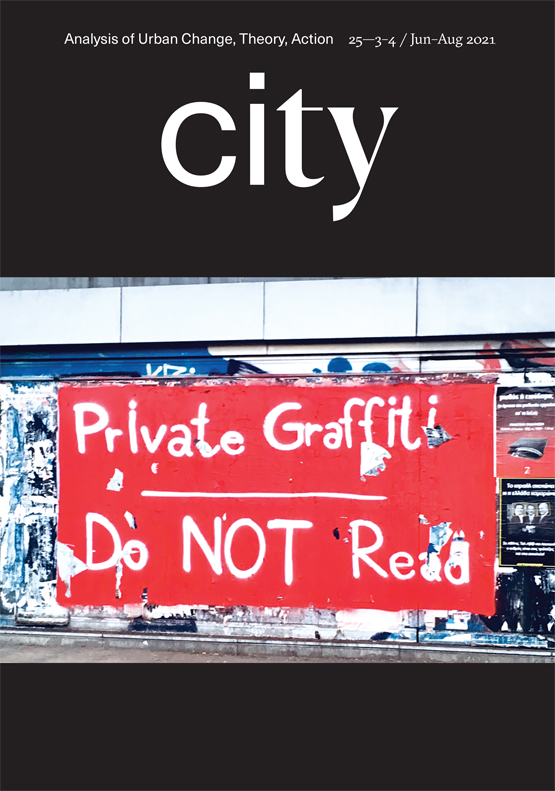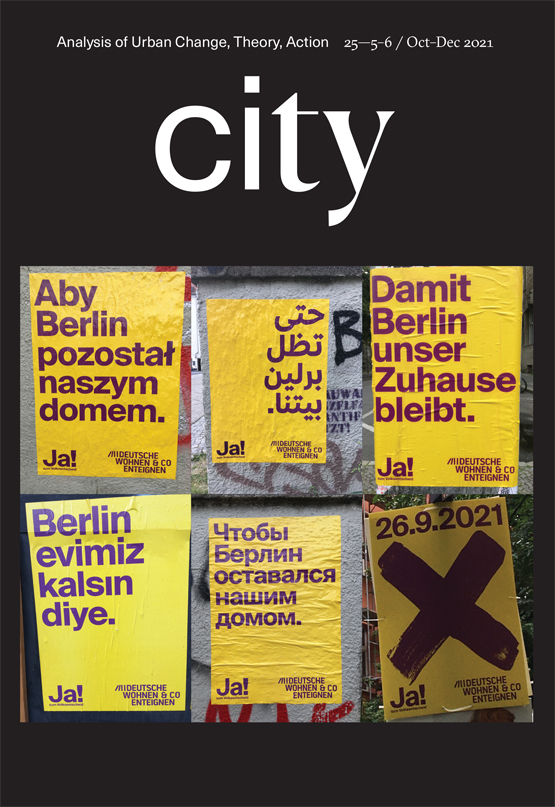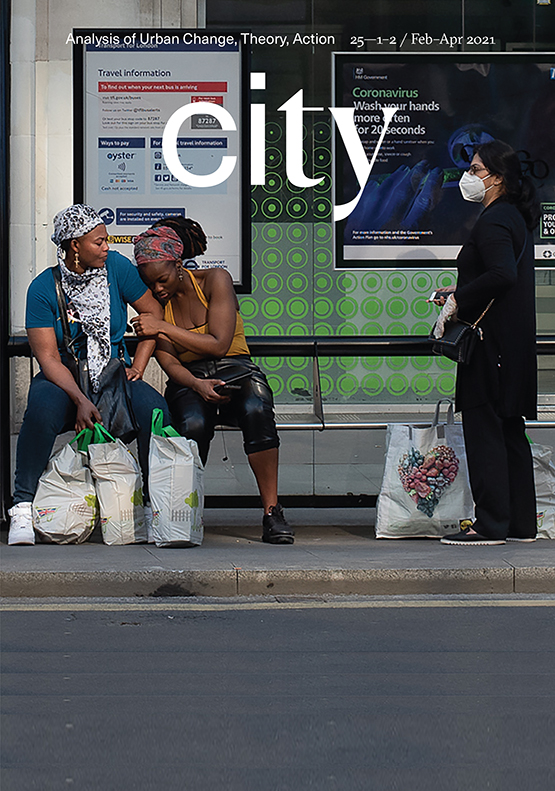founding editor: bob caterrall
editor: city editors
editorial: Moving between I and we: Care and collective work in City, by Andrea gibbons
This editorial continues portions of the conversation within the editorial by Ulises Moreno-Tabarez in our last double issue—I cannot stop thinking about the connections between the many pressures and meanings of academic production and social reproduction, care, culture, collective strength and the concrete transformation of our world. We work in institutions demanding that all that is personal be hidden behind a curtain. They ask that we make cool intellectual detachment look effortless as we bring in funding, generate five star articles, keep students happy. They leave it up to us to develop the structures we need to sustain intellectual work and life itself, to survive illness, to raise children, to care for elders, to develop community.
Our hope was always for City to be such a structure, a place to collectively support emancipatory scholarship, to bring together activist and academic work, to connect the personal and the political. Perhaps that is why I find it so easy to slip between the “I” and the “we” in thinking about City and the ways our team works. Pandemic’s recent isolation somehow demands more from the I in drawing on some of the resonances experienced from past and present in writing this, though it gathers such strength from the nurturing process of editing this issue with Anna Richter. Because this I remains anchored in the position of we so eloquently stated:
How do we continue to make strange keywords like impact, productivity, visibility, exposure, and prominence, while still signalling towards abolitionist and emancipatory praxes? We don’t have all the answers, but we insist on posing these persistent questions, to articulate them, to breathe oxygen into them, to care for them because they continue to mean something we value. They continue to guide our collective editorial practices which make critical reflections and methodologies the core of the conversation and debate. (Moreno-Tabarez 2021, 5)
I have been thinking about emancipation. Thinking about how we hold this distinction Ulises makes between chronic and crisis response, though I realise perhaps I don’t really know how to hold these two things. I don’t know how we avoid the risk of falling into chronic coping while feeling all the time that really, maybe, we cannot cope at all.
In the midst of the global pandemic, geographically shifting waves of COVID have seemed to decentre crisis in time and space. I feel for a moment I can breathe, and then suddenly I see again that it is too soon. I too feel utterly decentred, with friends and family scattered but especially my mother half the world away—it has been a physical pain to be so far. She tells me how well the word “languishing” captures the unreal yet still damaging and lonely sense of her current everyday in the tidal movements of Arizona’s COVID crisis. She heard this word in a church sermon, quoted from a story in the New York Times (Grant 2021). Then there are my cousin’s stories of the disgraces and death piling upon death piling upon death in the nursing home where she works. The acidic worry I carry for her and those on the frontline, the ways I realise I did not fully appreciate her courage and strength and centredness before. Grief seems to continuously unfold for people I love—It is not just Arundhati Roy (2021) who has cracked my heart in two with her words of fire.
In my social media feeds a friend’s picture of a delivery truck loaded with coffins on an LA street (see Figure 1), the pain of another experiencing her first birthday without her father. I sit here in South Manchester, where deaths also pile up, along with the dumping of garbage in any and all green spaces due to cuts to municipal services and the piles of silver nitrous oxide bottles abandoned in the gutters after quick highs. My social media fills with story after story of grief and loss and anger alongside the celebrations of new beginnings, new births and special days that could not be shared.
to read this editorial in full, please click here.





